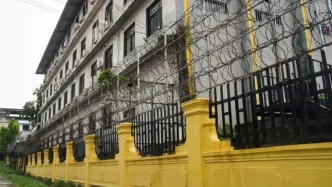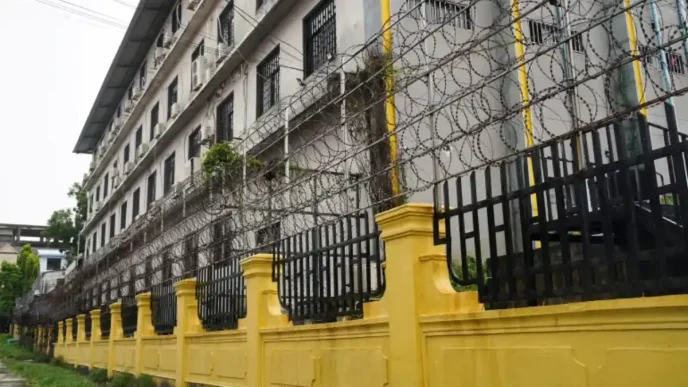Taiwan has issued a stark warning to its citizens, listing Thailand among five Southeast Asian countries deemed high-risk destinations due to the prevalence of fraud rings targeting foreign nationals. The announcement, made by Taiwan’s Interior Ministry, also includes Vietnam, Myanmar, Cambodia, and Laos, and comes with new measures to alert travellers, including warnings printed on plane tickets and recommendations to download a travel safety application.
This move underscores growing concerns over the safety of Taiwanese nationals travelling in the region, particularly following reports of individuals being lured into scam operations. The Taiwanese government’s response signals a broader regional challenge as countries grapple with transnational crime networks that exploit vulnerable travellers and workers.
Warnings at the Point of Travel
According to a report by Taiwan News on Friday, the Taiwanese Interior Ministry has instructed the National Immigration Agency and the Aviation Police Bureau to intensify efforts at airports to prevent citizens from travelling abroad to join fraud rings. Airlines operating flights to the listed countries will now print warnings on electronic tickets, alerting passengers to the risks associated with their destinations.
In addition, travellers are being advised to download a travel safety guidance application developed by the Taiwanese Foreign Ministry, which has been available since 2022. The app aims to provide real-time updates and safety tips for those venturing into high-risk areas. “Over the past few years, there have been several incidents involving Taiwanese being lured to Cambodia or Myanmar to work for scam gangs,” the Interior Ministry stated, highlighting the urgency of these protective measures.
The ministry also referenced a recent operation in Myanmar, where 260 foreigners, including seven Taiwanese nationals, were freed from a scam centre last week. The Taiwanese individuals are currently being interviewed by Thai police before their anticipated return home, underscoring Thailand’s role as a transit point in such cases.
Fraud Rings: A Regional Threat
The issue of fraud rings operating in Southeast Asia is not new, but the scale and sophistication of these networks have escalated in recent years. Often posing as legitimate businesses or job recruiters, these criminal groups target individuals with promises of high-paying work, only to trap them in exploitative conditions. Victims are frequently coerced into participating in online scams, such as phishing or investment fraud, under threats of violence or debt bondage.
Thailand, with its porous borders and status as a regional hub, has become a focal point for such activities. While the country is not always the final destination for victims, it often serves as a gateway to more remote areas in neighbouring Myanmar or Cambodia, where law enforcement is weaker. The Taiwanese government’s decision to label Thailand as high-risk reflects not only the presence of these networks but also the challenges in disrupting them.
Beyond Thailand, the inclusion of Myanmar and Cambodia on the list is unsurprising given their documented history of hosting scam centres. Myanmar, in particular, has seen a surge in such operations in border regions, where armed groups and weak governance create fertile ground for organised crime. The recent rescue of 260 individuals from a single scam centre in Myanmar illustrates the scale of the problem, as well as the international cooperation required to address it.
Taiwan’s Proactive Stance
Taiwan’s response to this issue is notable for its proactive nature. By integrating warnings into the travel process—via ticket notifications and airport interventions—the government aims to stop potential victims before they reach dangerous situations. This approach contrasts with more reactive measures, such as repatriation efforts after individuals have already been ensnared.
The travel safety app, while not a new tool, is being promoted as a critical resource for Taiwanese nationals. It offers guidance on avoiding scams, emergency contact information, and updates on regional risks. The app’s availability since 2022 suggests that Taiwan has been monitoring these threats for some time, though the latest warnings indicate a heightened level of concern.
Implications for Thailand and Regional Relations
For Thailand, being labelled a high-risk destination by Taiwan could have broader implications, particularly for its tourism industry, which is still recovering from the economic impacts of the COVID-19 pandemic. The country welcomes millions of international visitors each year, and while Taiwanese tourists represent a smaller share compared to markets like China or Europe, the warning could influence perceptions of safety among other nationalities.
Thai authorities have yet to respond officially to Taiwan’s announcement, but the issue of fraud rings is one that Bangkok has been addressing through regional cooperation frameworks like ASEAN. Joint operations with neighbouring countries and international partners have led to arrests and the dismantling of some scam networks, though the problem persists due to the cross-border nature of the crime.
Moreover, Taiwan’s move raises questions about how other governments might respond to similar risks in Southeast Asia. If more countries issue formal warnings or implement protective measures for their citizens, the pressure on regional governments to crack down on fraud rings could intensify. This, in turn, may lead to stronger law enforcement collaboration but also potential diplomatic friction if countries feel unfairly singled out.
A Growing Challenge for Travellers
For Taiwanese travellers, the warnings serve as a sobering reminder of the risks associated with international travel, particularly in less regulated parts of Southeast Asia. While the allure of affordable destinations like Thailand remains strong, the spectre of fraud rings casts a shadow over such trips. The government’s advice to download the safety app and heed ticket warnings is a practical step, but it also places the onus on individuals to protect themselves in the absence of foolproof systemic solutions.
The broader challenge lies in addressing the root causes of these scam operations, which often thrive in areas of economic disparity and weak governance. Until such conditions are improved, fraud rings will likely continue to exploit the vulnerable, whether they are local residents or foreign nationals drawn by false promises.
Taiwan’s designation of Thailand and four other Southeast Asian countries as high-risk destinations marks a significant step in raising awareness about the dangers of fraud rings. While the immediate focus is on protecting Taiwanese citizens, the move also highlights a regional issue that demands collective action. For Thailand, the challenge will be to strengthen its efforts against transnational crime without alienating international visitors or harming its reputation as a tourist-friendly destination.
As governments and travellers alike navigate this complex landscape, tools like safety apps and ticket warnings offer a partial solution. However, the ultimate resolution may require deeper reforms and cooperation to dismantle the networks profiting from human desperation. For now, Taiwanese nationals heading to Thailand and beyond are urged to proceed with caution, armed with the knowledge that their government is taking steps to shield them from unseen dangers.














